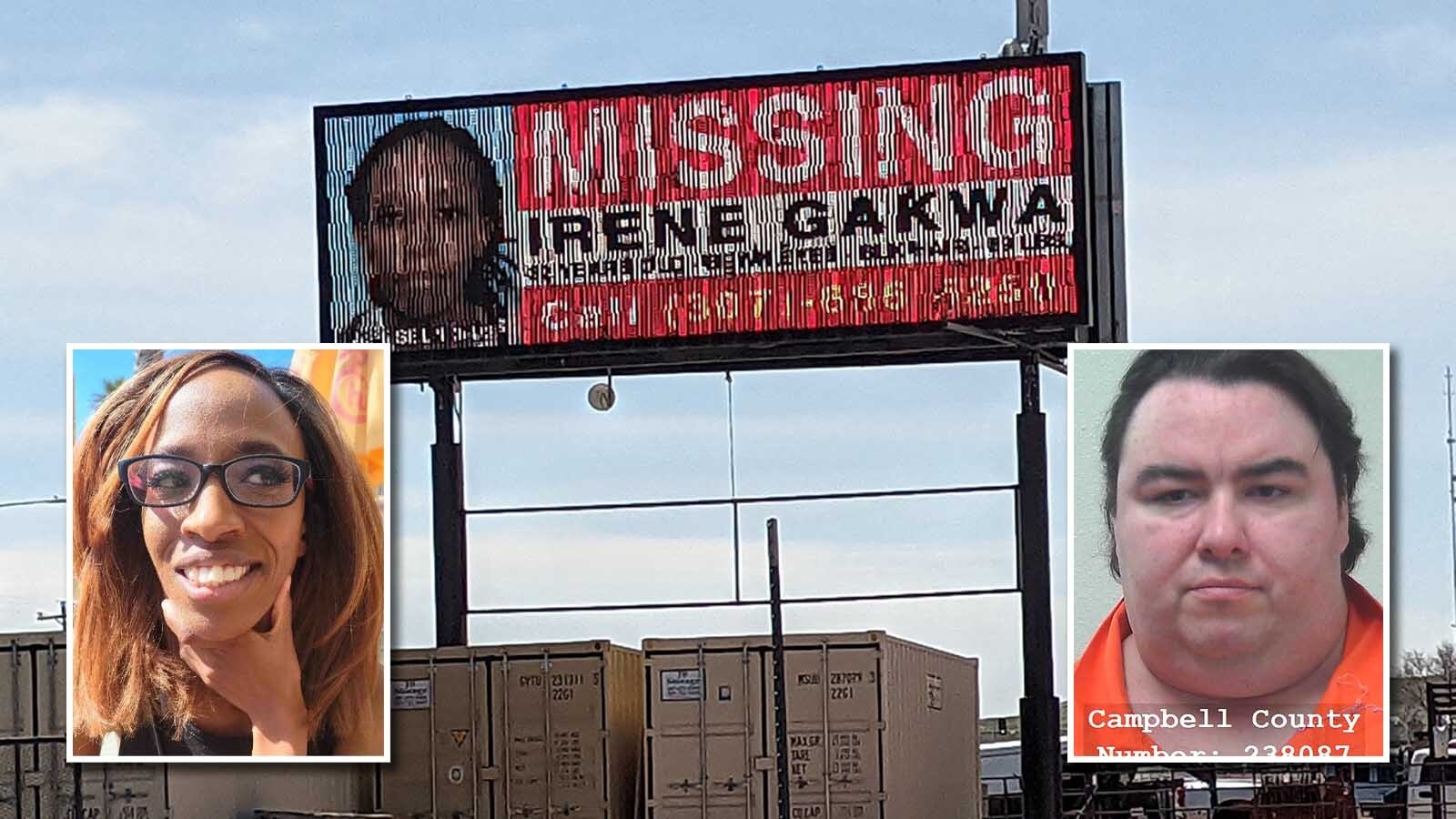The nursing home where a 66-year-old woman died of an opioid overdose in late November denied wrongdoing and asked a judge to throw out a wrongful death suit, according to a Friday filing in Campbell County District Court.
The Legacy Living and Rehabilitation Center in Gillette asked the case judge to dismiss the lawsuit against it with prejudice, meaning permanently.
Legacy has garnered headlines in recent months for the Nov. 29 death of Rhonda Parker, 66, from an opioid overdose — and for a January incident, where a memory care patient died after she wandered into the cold unsupervised.
In June, Parker’s daughter, Christina Jones, sued the nursing home and licensed practical nurse Emily Ware, alleging they caused Parker’s wrongful death.
The original complaint also accused FocusOne Solutions of involvement and said Ware was a FocusOne contractor, but Jones’ attorney, Steven Titus, has since filed a new version of the complaint naming Nebraska-based Aureus Nursing LLC in its place.
Legacy, which operates under the government-run umbrella of the Campbell County Hospital District, denied civil wrongdoing in its Friday answer to Jones’ lawsuit.
The nursing home also raised potential defenses, citing unforeseeable acts, third-party fault, preexisting medical conditions, or governmental immunity provisions as limiting or barring its liability in the case.
Aureus also denies wrongdoing, and asked the court in a July 22 filing, likewise, to dismiss the case with prejudice.
The Shutdown
Jones’ complaint seeks more than $51,000 in damages. She is seeking a jury trial and all compensation allowed by law including punitive damages, as well as reimbursements for her legal costs.
Rhonda Parker died the morning of Nov. 29, at Legacy.
One day earlier on Nov. 28 at 7:30 a.m., Parker had reported to a nurse that she was struggling to breathe and may have pneumonia, says a Gillette Police Department report by Officer Kyle Sprague.
The CNA told nurse Ware, and Ware entered the room about a half hour later to assess Parker by taking her vitals, which were normal, the report says.
The nurse gave Parker a breathing treatment, which the lawsuit complaint says also included the respiratory medication Duoneb.
Parker asked to go to the emergency room, the report says.
Ware replied that Parker was “fine,” it adds.
Parker went back to sleep until about 30 minutes after noon. When staffers woke her, she’d had an incontinence incident and needed help rising from the bed, the report says. She then had a light lunch, which was also unusual for her, and appeared lethargic, weak and disoriented, wrote Sprague.
Later, when Parker was using the bathroom, the CNA noticed “seizure activity,” says the report, adding that Ware did not assess the situation when told of the seizure.
The report says Ware called a nurse from another floor for a different opinion.
At about 2 p.m., a housekeeping staffer reported that Parker had complained of chest pains; yet Ware “once again said she was fine,” wrote Sprague.
The complaints escalated, reaching the charge nurse, the officer added.
The charge nurse told Ware to do a full assessment and vitals on Parker. Ware just took the woman’s vitals, says the report.
“Nurse Emily advised since Rhonda could not rate her pain, she was fine,” the officer wrote in the police report.
Parker asked if she could go back to sleep. She refused to eat dinner, and she slept through the night, which the police report says was also odd for her.
Parker was found unresponsive at 4:20 a.m. Nov. 29. CPR was unsuccessful. Once emergency medical personnel arrived on scene, they pronounced her dead at 5:02 a.m., says the report.
Overdose
Dr. D.M. Habbe of Pathologists of the Black Hills conducted an autopsy of Parker’s body Dec. 4 and identified her cause of death as Tramadol toxicity, the lawsuit complaint says.
Parker’s Tramadol level was 7300 nanograms per milliliter of blood, or “more than seven times the upper limit of typical therapeutic levels — which are generally kept below 1,000 (nanograms),” wrote Titus.
The autopsy report also diagnosed Parker with a coronary artery condition and early bronchopneumonia.
Campbell County Coroner Paul Wallem listed Parker’s cause of death as Tramadol overdose or toxicity.
Wallem listed the manner of death – which can include natural, suicide, accident, homicide or undetermined – as undetermined.
Jones’ lawsuit accuses Legacy and Ware of “egregiously” deviating from the standards of care that should have applied in this case.
Nursing Home Statement
Legacy released a statement in June saying it was cooperating with authorities and regulatory agencies, “and remains committed to transparency, accountability, and the safety of our residents and staff throughout this process.”
The Campbell County Health Board of Trustees addressed both this incident and the January incident in which a memory care patient died outside in freezing temperatures, the statement says.
The statement says district leaders fired people, reported incidents to authorities and took other actions to address those happenings.
"The meeting included a detailed overview of the actions taken to investigate and respond to each event (including) the immediate reporting of both incidents to state authorities and law enforcement, the termination of involved employees and contract personnel, the submission of findings to the appropriate licensing agencies, and the implementation of enhanced safety protocols and administrative oversight measures," it reads.
Regarding the November incident involving Parker, "The Legacy took swift and appropriate action," says the statement, adding that facility leaders reported the incident, fired the contract employee "involved" and reported that person's license to the state for review.
The statement does not list Ware by name.
"We understand the public's interest in these matters and are committed to sharing verified information as it becomes appropriate," the statement concludes. "Our primary focus remains the wellbeing and care of the residents we serve every day."
This Case Isn’t That Case
Weeks after Parker’s death, an 88-year-old memory care patient wandered outside the Legacy building in early January and died, according to court documents in a different case.
Bernard Hale, 57, a Legacy staffer, was charged in the patient’s freezing death.
Judith Duvall was found unresponsive on the snow the morning of Jan. 10 after spending more than nine hours in freezing temperatures.
Hale's criminal case is ongoing in the Campbell County District Court, with trial set for Aug. 25.
Clair McFarland can be reached at clair@cowboystatedaily.com.





